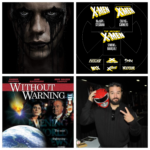“You paid for the whole seat, but you’ll only need the EDGE!”
I was so glad to read this refreshing article in the New Yorker about Roald Dahl:
http://www.newyorker.com/critics/atlarge/articles/050711crat_atlarge
I have always LOVED this man’s work, and I feel that outside of Charlie and the Chocolate Factory, few people are familiar with his books. In fact, most people just know “Willy Wonka & the Chocolate Factory”, which was the Gene Wilder movie. Sure, it’s inspired by the book, but not nearly as good. This article helped me to learn what it is I like about Dahl’s stories: he cherishes the notion of childhood.
Anyone who knows me realizes that this is a very important thing to me. Just look at my site’s tagline. I have “Peter Pan syndrome” like no other, and Dahl has a knack for bringing this out. He was the textbook case of “didn’t have a happy childhood, so he never really grew up”. Hell, we see this today, from Michael Jackson to the entire frickin’ cast of “Diff’rent Strokes”.
Not to throw my HD in anyone’s face, but it should be noted that “childhood” is a very young concept. We like to think that a person is born, enjoys some play years, and then enters the work world. But the notion of childhood hails from the very beginning of the 20th century. Prior to this time, children were seen a “little adults”. The fashions reflected this, as did the activities in which they participated. Dahl was born in 1916, so it’s safe to say that he was still reveling in the infancy of this cultural shift. While his own childhood didn’t reflect these changes, he took notice and began to romanticize this movement, later featuring it in his books.
In the Dahl-verse, even the unhappiest orphan can seize the day. Charlie slept in the same bed as his old sickly grandparents, in their one-room apartment. But he still ends up with the chocolate factory. James is abused by his aunts, but he still crushes them with his giant peach. Matilda dealt with abusive parents, but discovered she had telekinesis and put them in their place. In Dahl’s stories, childhood is about cheerful, reckless abandon. Let your imagination run wild and run wild with your imagination.
Anyway, I just thought I’d share. I know there was that recent quiz being circulated about meaningful books, so this is a collection that’s meaningful to me. It may not have the Summer Reading List clout of, say “Heart of Darkness”, but I’m always transported to a good place, and notice something new and exciting with each reading…



